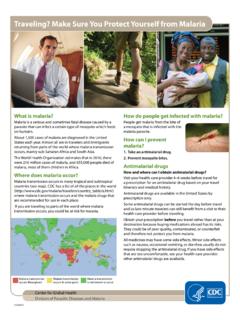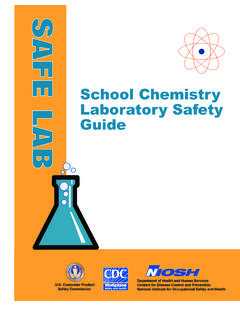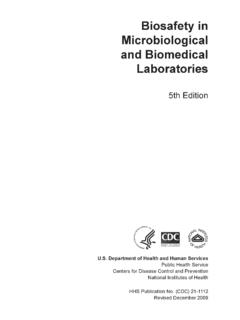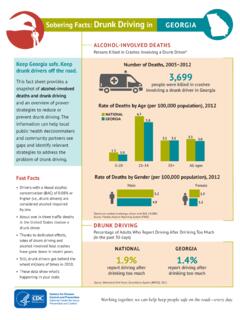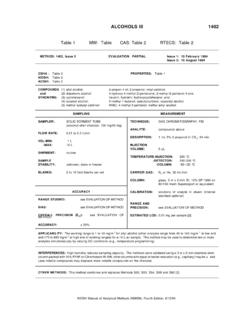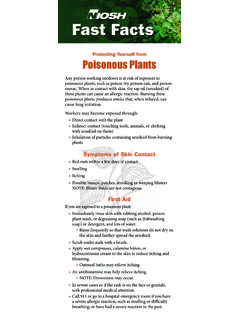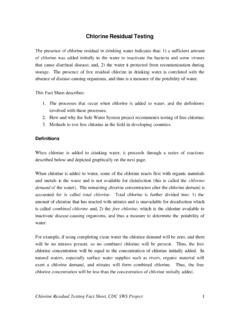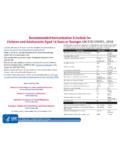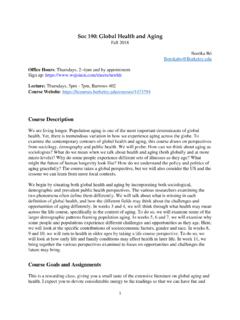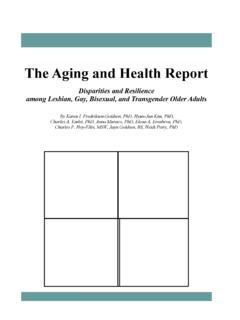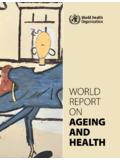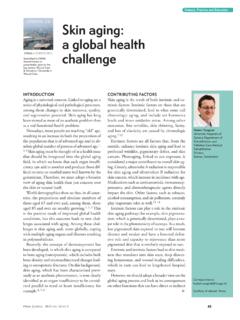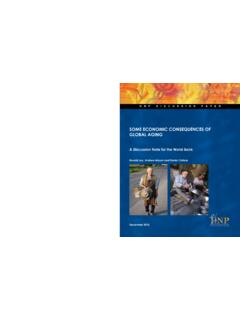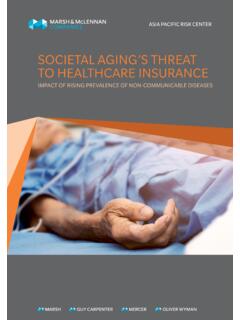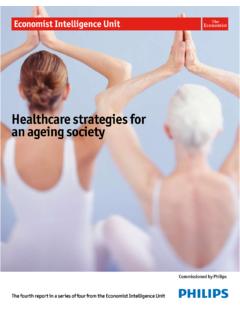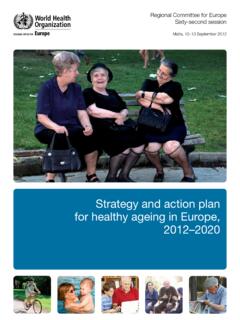Transcription of A PUBLIC HEALTH APPROACH TO ALZHEIMER’S AND OTHER ...
1 A PUBLIC HEALTH APPROACH TO alzheimer S AND OTHER DEMENTIAS MODULE 1: alzheimer S DISEASE AS A PUBLIC HEALTH CRISIS 1 Table of Contents About Module Learning Layout of Module 1 Faculty How to Use the Student Engagement Discussion Learning Additional Slide PowerPoint Sample Test Selected Case Studies-Module alzheimer s Disease Video 2 ABOUT MODULE 1 This module is part of the alzheimer s Association curriculum, A PUBLIC HEALTH APPROACH to alzheimer s and OTHER Dementias. Developed as part of a cooperative agreement with CDC s Healthy Aging Program, and in partnership with Emory University s Rollins School of PUBLIC HEALTH , this curriculum addresses cognitive HEALTH , cognitive impairment, and alzheimer s disease and is for use by undergraduate faculty in schools and programs of PUBLIC HEALTH .
2 Module 1: alzheimer s Disease A PUBLIC HEALTH Crisis. This module frames alzheimer s and dementia as a PUBLIC HEALTH epidemic with a large and rapidly growing burden that bears significant impact on the nation. The impact of alzheimer s disease is felt at a national, state, and local level as well as on a family and personal level through financial burdens, resource needs, and professional requirements. Module 1 focuses primarily on the United States as it explores the current and projected scope of the epidemic, the financial burden on federal and state governments as well as individuals, and the care burden on caregivers and the HEALTH care system.
3 HEALTH disparities are highlighted, as rates of alzheimer s disease are substantially higher for African-Americans and Hispanics. Module 1 covers the following topics: Scope of the epidemic Financial burden Care burden PUBLIC HEALTH APPROACH LEARNING OBJECTIVES At the end of Module 1: alzheimer s Disease A PUBLIC HEALTH Crisis, students will be able to: Provide a general description of dementia and alzheimer s disease. Explain the current and projected scope of the alzheimer s disease epidemic. Discuss the cost burden of alzheimer s disease for federal/state governments and individuals/caregivers.
4 Describe the care burden of alzheimer s disease, including caregivers and the HEALTH care system. 3 Module 1: alzheimer s Disease A PUBLIC HEALTH Crisis Identify HEALTH disparities related to alzheimer s and dementia . Explain why PUBLIC HEALTH must play a role in addressing the alzheimer s disease epidemic. COMPETENCIES Module 1 promotes basic learning that supports the development of certain competencies: Association for Gerontology in Higher Education (AGHE): Demonstrate knowledge of signs, symptoms, and impact of common cognitive and mental HEALTH problems in late life ( , dementia , depression, grief, anxiety).
5 Association of Schools and Programs of PUBLIC HEALTH (ASPPH): Domain 1: Discuss major local, national, and global HEALTH challenges. Council on Linkages Between Academia and PUBLIC HEALTH Practice: 2A. Identifies current trends ( , HEALTH , fiscal, social, political, environmental) affecting the HEALTH of a community. National Association of Chronic Disease Directors (NACDD): Domain 7: Articulate key chronic disease issues. National Commission for HEALTH Education Credentialing, Inc. (NCHEC): Identify current and emerging issues that may influence HEALTH and HEALTH education.
6 Disclaimer: This publication was supported by Cooperative Agreement Number 5U58DP002945-05, funded by the Centers for Disease Control and Prevention. Its contents are solely the responsibility of the authors and do not necessarily represent the official views of the Centers for Disease Control and Prevention or the Department of HEALTH and Human Services. The mark "CDC is owned by the US Dept. of HEALTH and Human Services and is used with permission. Use of this logo is not an endorsement by HHS or CDC of any particular product, service, or enterprise. 4 Module 1: alzheimer s Disease A PUBLIC HEALTH Crisis LAYOUT OF MODULE 1 FACULTY GUIDE This guide is laid out in the following sections: 1.
7 Slide guide with talking points 2. Sample test questions 3. Case studies 4. Video resources Note: Some slides in this module duplicate content from OTHER modules and may be removed as needed. HOW TO USE THE MATERIALS This module is one of four modules in this curriculum that were designed for use either as a set or as stand-alone modules. Users are free to make changes to the materials to fit their needs, including: adding, modifying or removing content, graphics, talking points, discussion questions or learning activities. The Faculty Guide for each module includes a slide guide that contains the information as presented in the slide, talking points, space for presenter notes, and references.
8 The talking points included in the Faculty Guide should not be read word for word; each presenter should review the materials before delivering the material to ensure familiarity and deliver the information in his/her own style. Delivery time will generally be 60-90 minutes per module, depending on class engagement, presenter style, and the addition or elimination of any content, discussion questions, or learning activities. Discussion questions are included in the slide deck of each module. These may be modified or removed at the discretion of the presenter. Questions may also be used for OTHER activities such as small group discussion or individual writing assignments.
9 Video resources, a list of articles and case studies are also included to help in learning more about the topics presented in each module. Test questions are provided with each module as an additional resource for faculty. All materials are 508 compliant. (Note: if changes are made to the curriculum, it is recommended that changes continue to follow 508 compliance guidelines. For more information on 508 compliance visit the Department of HEALTH and Human Services website: ) 5 Module 1: alzheimer s Disease A PUBLIC HEALTH Crisis STUDENT ENGAGEMENT OPTIONS In addition to the PowerPoint slide deck and guide, there are additional resources included in this guide.
10 These resources are designed to increase student engagement and enhance understanding of the concepts covered in this module. Following the slide guide, there is a series of case studies and a list of video resources. It is recommended that the presenter review these resources to determine if these additional materials would be useful in illustrating the concepts covered in the module. DISCUSSION QUESTIONS The following discussion questions are included in the slide deck: What are Medicare and Medicaid? (Slide 16) What might be the roles and responsibilities of a caregiver for someone with alzheimer s disease?
